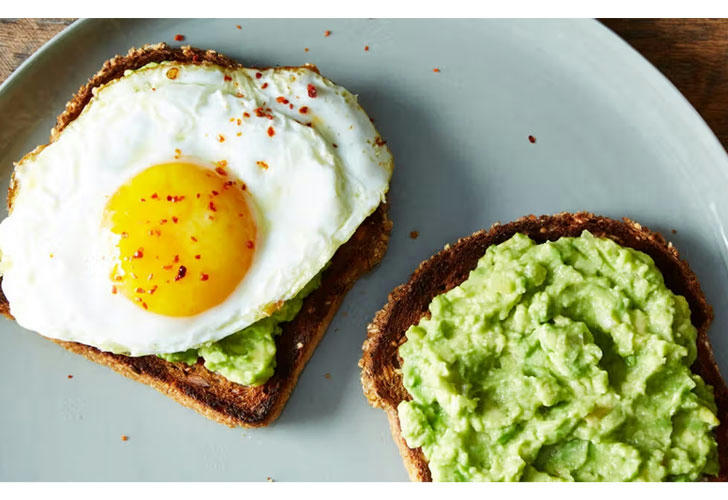What is the Best Breakfast for a Diabetic
Breakfast is often referred to as the most important meal of the day, and for individuals managing diabetes, this statement holds particularly true. A well-balanced breakfast can help stabilize blood sugar levels, provide essential nutrients, and keep you feeling full until lunchtime. Here’s a guide to the best breakfast options for people with diabetes, including specific foods and their nutritional information.
Relatedsearches

1. Scrambled Eggs with Spinach
Why It’s Great: Eggs are an excellent source of protein and healthy fats, which can help regulate blood sugar levels. Adding spinach boosts fiber and nutrient content.
Nutritional Information (2 scrambled eggs with 1 cup of spinach):
• Calories: 180
• Protein: 14 g
• Fat: 12 g
• Carbohydrates: 2 g
• Fiber: 1 g
2. Greek Yogurt with Berries
Why It’s Great: Greek yogurt is high in protein and low in carbohydrates, making it a perfect choice for breakfast. Berries add natural sweetness and are rich in antioxidants.
Nutritional Information (1 cup of plain Greek yogurt with ½ cup of mixed berries):
• Calories: 200
• Protein: 20 g
• Fat: 5 g
• Carbohydrates: 25 g
• Fiber: 5 g
3. Oatmeal with Chia Seeds
Why It’s Great: Oatmeal is a whole grain that provides soluble fiber, which helps control blood sugar levels. Adding chia seeds boosts fiber and omega-3 fatty acids.
Nutritional Information (1 cup of cooked oatmeal with 1 tablespoon of chia seeds):
• Calories: 240
• Protein: 8 g
• Fat: 5 g
• Carbohydrates: 42 g
• Fiber: 10 g
4. Avocado Toast on Whole Grain Bread
Why It’s Great: Avocados are rich in healthy fats and fiber, which can help prevent blood sugar spikes. Whole grain bread provides complex carbohydrates.
Nutritional Information (1 slice of whole grain bread topped with ½ avocado):
• Calories: 257
• Protein: 6.9 g
• Fat: 16.3 g
• Carbohydrates: 24.3 g
• Fiber: 11.2 g
5. Smoothie with Spinach, Berries, and Protein Powder
Why It’s Great: A smoothie can be a quick and nutritious breakfast option. Combining spinach, berries, and protein powder creates a balanced meal that is easy to digest.
Nutritional Information (1 serving):
• Calories: Approximately 250
• Protein: 20 g (depending on protein powder)
• Fat: 5 g
• Carbohydrates: 30 g
• Fiber: 6 g
6. Zucchini-Tomato Frittata
They say breakfast is the most important meal. Looking for an option that's healthy and easy? Jam-packed with veggies, including zucchini, tomato, broccoli, onion, and bell peppers, this low-carb egg dish is a nutrient-rich way to start your day!
Calories: 160 calories, Carbohydrates: 13 g, Protein: 16 g, Fat: 5 g, Saturated Fat: 2 g, Cholesterol: 163 mg, Sodium: 305 mg, Fiber: 3 g
Tips for a Diabetes-Friendly Breakfast
1. Focus on Fiber: Choose high-fiber foods like whole grains, fruits, and vegetables to help slow digestion and improve blood sugar control.
2. Incorporate Protein: Including protein at breakfast can increase satiety and help stabilize blood sugar levels throughout the morning.
3. Limit Added Sugars: Avoid sugary cereals, pastries, and sweetened beverages. Opt for natural sweetness from fruits instead.
4. Watch Portion Sizes: Be mindful of portion sizes to manage carbohydrate intake effectively.
5. Stay Hydrated: Start your day with water or unsweetened beverages to stay hydrated without adding calories or sugars.
Relatedsearches
Conclusion
A well-balanced breakfast is crucial for managing diabetes effectively. By incorporating high-fiber foods, lean proteins, and healthy fats into your morning meal, you can help stabilize your blood sugar levels while enjoying delicious options. Whether you choose scrambled eggs with spinach or a smoothie packed with nutrients, these breakfast ideas will set a positive tone for the rest of your day!
